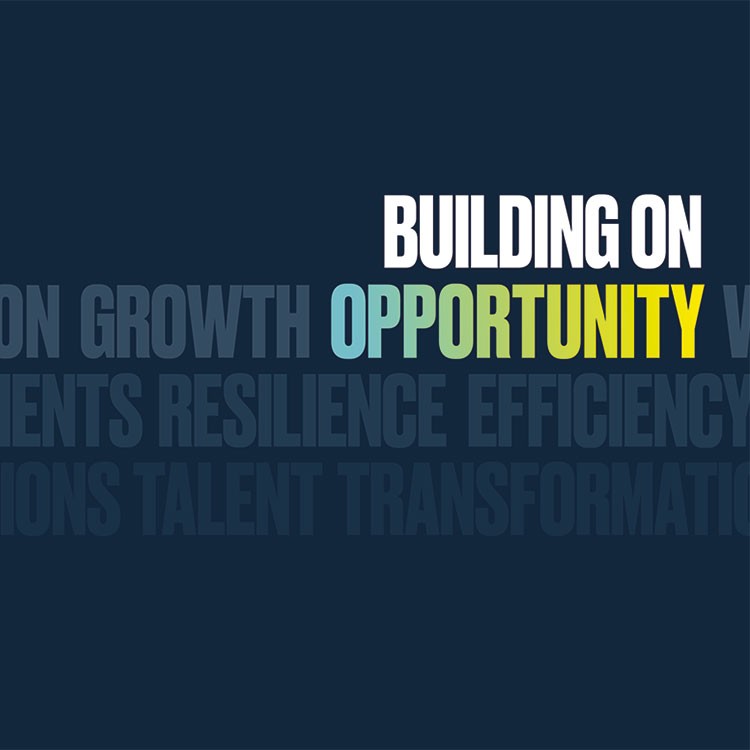An Uncertain Landscape: Five Trade Finance Trends for 2023

An Uncertain Landscape: Five Trade Finance Trends for 2023
March 2023
By Lynn Galkoski
This article originally appeared in Trade Finance Global on March 22, 2023 and is reprinted here with permission from the publisher.
As uncertainty remains in global supply chains and trade finance, Lynn Galkoski, Director, Trade Product & Portfolio Management with BNY Mellon Treasury Services and Board Member for the International Trade and Forfaiting Association (ITFA) shares her insights on trends that may arise this year.
At its core, trade finance supports one of the most fundamental economic concepts: Countries need to import and export goods and services based on their own resources, or lack thereof.
This dynamic places trade finance at the center of the international economy and also carries ramifications for the wider political community. Without it, the provision of vital goods and services would grind to a halt–or, at the very least, come with an uncomfortable delay.
Yet, for the past few years, global trade has been marked by unprecedented uncertainty. The COVID-19 pandemic revealed what many already knew to be true about global commerce: businesses that can anticipate, react and adjust to market fluctuations will succeed, whereas others fall behind.
As the impact of the pandemic recedes, new challenges are emerging. The growing focus on environmental, social and governance (ESG) is forcing businesses to contend with climate-friendly and ethical social practices, alongside a move to reduce the trade financing gap for small and medium-sized enterprises (SMEs). At the same time, global headwinds continue to apply external pressure–meaning this could be a make-or-break moment for supply chains and their financing.
Amid geopolitical shocks, issues with inflation, a diminished workforce and evolving regulatory requirements, a key question remains: how can businesses not only survive, but thrive, in a fragmented trade finance ecosystem? To meet these challenges head-on, there are several fronts on which the trade finance industry can transform to keep pace:
1. Risk and Resiliency
Risk is central to trade finance. Each transaction is only as good as the documentation that supports it–and, in this way, we are all risk managers. This includes traditional Know Your Customer (KYC) checks, but also having a deep understanding of geographical risks and other factors, such that every eventuality can be assessed and addressed–no matter how unlikely.
By helping us to prepare for the unexpected, risk management comes hand in hand with business continuity and resiliency. Recent events, such as COVID-19 and the conflict in Ukraine, have shown that even the unlikeliest eventualities can happen–and the corporates and banks that can adjust to these market risks are the ones that will eventually come out on top.
Additionally, companies that build, diversify, and strengthen their network of third-party providers, such as suppliers, freight forwarders, transport logistics providers, and technology providers, stand the best chance of absorbing future shocks.
2. Transparency and Visibility
As ESG continues to grow in prominence, consumers are expecting an increasing level of transparency in supply chains. Increased visibility in sourcing, production, logistics, costs, and accounting will have a multitude of benefits, but, to achieve this, companies at all stages of the supply chain must assess and adjust their own processes.
Improving visibility in supply chains, and manufacturing more generally, could also increase resource efficiency. Transparency, for example, will create more apparent connections between surplus materials and by-products in one supply chain that may be an invaluable resource in another–minimizing waste.
Whether an established player or a new market entrant, companies that can streamline and automate their practices–and leverage technology and platforms to do so–will prevail.
3. Data-driven Analysis
Business globalization has increased competition in almost every industry. To keep pace, leaders and management teams should not only embrace data but use it strategically to drive results. Gaining efficiencies and digitization will be key forces to transform the industry as well. For example, data analytics, and other technological improvements, can be leveraged by businesses to move away from a reactive, crisis-driven model and into a more strategic, proactive model. The application of this approach in the global trade landscape will be a key trend in the coming years.
4. Workforce Stabilization and Optimization
In a post-pandemic world, labor shortages have persisted and continue to hinder the economic recovery. This has particularly been the case in jobs related to supply chains and logistics. For example, physical roles, such as truck drivers and inventory managers, have been among the most affected.
The problem penetrates more deeply than just on-the-ground personnel. There are also shortages in processing and analytics roles, meaning that corporates must outsource procurement and other back-office roles to other countries. And as Generation Z enters the workforce, roles in trade finance and supply chains must be adequately incentivized, or the industry risks a further widening of this labor gap.
Additionally, diversity, equity & inclusion (DEI) goals hope to level set and optimize the workforce. For example, one DEI initiative includes more women-led businesses and managers to help bring the need for a more diverse mindset to the forefront.
5. Environmental and Social Focus
Ethical sourcing, climate-smart supply chain planning, eco-friendly warehousing, clean energy, and green logistics are fast becoming an important part of the trade equation. They are not only a good way to improve a company’s environmental footprint, but also an increasingly important factor in meeting changing consumer demands. Green consumerism, for example, is a growing trend–with research finding that two-thirds of consumers say they will pay more for sustainable products.
This focus is here to stay, and trade finance can play a key role in encouraging more climate-conscious supply chains in the future by, for example, offering modifications in pricing for those engaging in environmental best practices.
Looking to the Years Ahead
Uncertainties and disruptions, whether caused by global market shocks, labor fluctuations, or changing regulations, have had a profound impact on supply chains in recent years–and this is likely to continue for some time to come.
To remain abreast of these challenges, businesses must remain nimble and flexible enough to adjust to new and unexpected scenarios–and technology will be a key enabler in this respect.
As this transformation sweeps across the trade industry, it is the role of banks and other trade finance bodies, such as the ITFA, to support suppliers and logistics managers in the transition.
BNY Mellon is the corporate brand of The Bank of New York Mellon Corporation and may be used as a generic term to reference the corporation as a whole and/or its various subsidiaries generally. This material and any products and services may be issued or provided under various brand names in various countries by duly authorised and regulated subsidiaries, affiliates, and joint ventures of BNY Mellon, which may include any of the following. The Bank of New York Mellon, at 240 Greenwich Street, New York, NY 10286, USA a banking corporation organised pursuant to the laws of the State of New York, and operating in England through its branch at 160 Queen Victoria Street, London, EC4V 4LA, UK, registered in England and Wales with numbers FC005522 and BR000818. The Bank of New York Mellon is supervised and regulated by the New York State Department of Financial Services and the US Federal Reserve and authorised by the Prudential Regulation Authority. The Bank of New York Mellon, London Branch is subject to regulation by the Financial Conduct Authority and limited regulation by the Prudential Regulation Authority. Details about the extent of our regulation by the Prudential Regulation Authority are available from us on request. The Bank of New York Mellon SA/NV, a Belgian public limited liability company, with company number 0806.743.159, whose registered office is at 46 Rue Montoyerstraat, B-1000 Brussels, Belgium, authorised and regulated as a significant credit institution by the European Central Bank (ECB), under the prudential supervision of the National Bank of Belgium (NBB) and under the supervision of the Belgian Financial Services and Markets Authority (FSMA) for conduct of business rules, and a subsidiary of The Bank of New York Mellon. The Bank of New York Mellon SA/NV operates in England through its branch at 160 Queen Victoria Street, London EC4V 4LA, UK, registered in England and Wales with numbers FC029379 and BR014361. The Bank of New York Mellon SA/NV (London Branch) is authorised by the ECB and subject to limited regulation by the Financial Conduct Authority and the Prudential Regulation Authority. Details about the extent of our regulation by the Financial Conduct Authority and Prudential Regulation Authority are available from us on request. The Bank of New York Mellon SA/NV operating in Ireland through its branch at 4th Floor Hanover Building, Windmill Lane, Dublin 2, Ireland trading as The Bank of New York Mellon SA/NV, Dublin Branch, is authorised by the ECB and is registered with the Companies Registration Office in Ireland No. 907126 & with VAT No. IE 9578054E. The Bank of New York Mellon, Singapore Branch, subject to regulation by the Monetary Authority of Singapore. The Bank of New York Mellon, Hong Kong Branch, subject to regulation by the Hong Kong Monetary Authority and the Securities & Futures Commission of Hong Kong. If this material is distributed in Japan, it is distributed by The Bank of New York Mellon Securities Company Japan Ltd, as intermediary for The Bank of New York Mellon. If this material is distributed in, or from, the Dubai International Financial Centre (“DIFC”), it is communicated by The Bank of New York Mellon, DIFC Branch, regulated by the DFSA and located at DIFC, The Exchange Building 5 North, Level 6, Room 601, P.O. Box 506723, Dubai, UAE, on behalf of The Bank of New York Mellon, which is a wholly-owned subsidiary of The Bank of New York Mellon Corporation. This presentation, which may be considered advertising, is for general information and reference purposes only and is not intended to provide legal, tax, accounting, investment, financial or other professional advice on any matter, and is not to be used as such. BNY Mellon does not warrant or guarantee the accuracy or completeness of, nor undertake to update or amend the information or data contained herein. We expressly disclaim any liability whatsoever for any loss howsoever arising from or in reliance upon any of this information or data. This material is intended for Professional Clients and market counterparties only and no other person should act upon it. The information contained in this presentation is for use by wholesale clients only and is not to be relied upon by retail clients. Not all products and services are offered in all countries.
The Bank of New York Mellon is regulated by the Australian Prudential Regulation Authority and also holds an Australian Financial Services Licence No. 527917 issued by the Australian Securities and Investments Commission to provide financial services to wholesale clients in Australia.
This material does not constitute an offer to sell or the solicitation of an offer to buy any products or services in the People’s Republic of China (PRC) to any person to whom it is unlawful to make the offer or solicitation in the PRC. BNY Mellon does not represent that this material may be lawfully distributed, or that any products may be lawfully offered, in compliance with any applicable registration or other requirements in the PRC, or pursuant to an exemption available thereunder, or assume any responsibility for facilitating any such distribution or offering. In particular, no action has been taken by the issuer which would permit a public offering of any products or distribution of this material in the PRC. Accordingly, the products are not being offered or sold within the PRC by means of this material or any other document. Neither this material nor any advertisement or other offering material may be distributed or published in the PRC, except under circumstances that will result in compliance with any applicable laws and regulations. Products may be offered or sold to PRC investors outside the territory of the PRC provided that such PRC investors are authorized to buy and sell the products in the offshore market. Potential PRC investors are responsible for obtaining all relevant approvals from the PRC government authorities, including but not limited to the State Administration of Foreign Exchange, and compliance with all applicable laws and regulations, including but not limited to those of the PRC, before purchasing the products.
Trademarks and logos belong to their respective owners.
© 2023 The Bank of New York Mellon Corporation.




